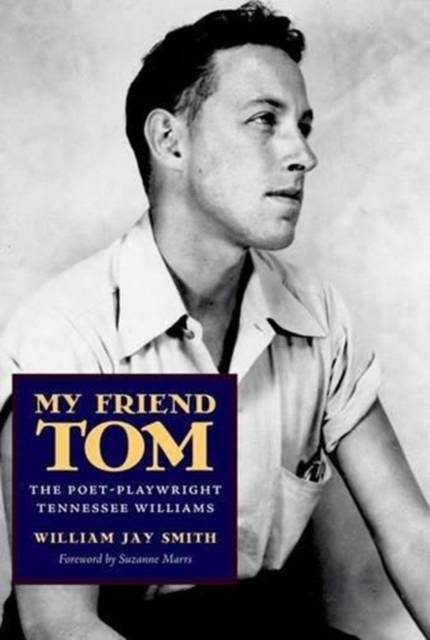
Bedankt voor het vertrouwen het afgelopen jaar! Om jou te bedanken bieden we GRATIS verzending (in België) aan op alles gedurende de hele maand januari.
- Afhalen na 1 uur in een winkel met voorraad
- In januari gratis thuislevering in België
- Ruim aanbod met 7 miljoen producten
Bedankt voor het vertrouwen het afgelopen jaar! Om jou te bedanken bieden we GRATIS verzending (in België) aan op alles gedurende de hele maand januari.
- Afhalen na 1 uur in een winkel met voorraad
- In januari gratis thuislevering in België
- Ruim aanbod met 7 miljoen producten
Zoeken
€ 39,45
+ 78 punten
Omschrijving
Tennessee Williams (1911-1983) was one of the most acclaimed, popular, and controversial American playwrights of the twentieth century. The Glass Menagerie, A Streetcar Named Desire, and Cat on a Hot Tin Roof are all considered classics of modern theatre, and their characters and situations are iconic representations of the postwar South. In his early years, Williams concentrated his literary talents just as intently on poetry as on plays. Watching over him during this critical learning period was his close friend William Jay Smith (1918-2015), who met Williams in St. Louis as both were embarking on careers as writers. Smith would go on to publish thirteen collections of poetry and an epic sequence of poems describing the forced removal of Native American tribes east of the Mississippi. Both Smith and Williams were affected profoundly by memories of childhood and adolescence in Louisiana and Mississippi, and those experiences shaped their subsequent, mature work once they moved out of the South. My Friend Tom is at once Smith's critical analysis of Williams's early work in poetry and drama, a brief biography of Williams during his development stages as a writer, and a moving meditation on his friend's career from Williams's early failures and ambiguities to fame and notoriety. Smith provides in-depth looks at the inception, development, and reception (both commercial and critical) of such early Williams efforts as Candles to the Sun and Fugitive Kind, and later Battle of Angels. Using his own correspondence with Williams, contemporary newspaper accounts, and back issues of long-dissolved literary journals, Smith re-creates Williams's youthful efforts and traces, wistfully and adroitly, his own rough passage into the world of letters.
Specificaties
Betrokkenen
- Auteur(s):
- Uitgeverij:
Inhoud
- Aantal bladzijden:
- 192
- Taal:
- Engels
Eigenschappen
- Productcode (EAN):
- 9781617031755
- Verschijningsdatum:
- 12/01/2012
- Uitvoering:
- Hardcover
- Formaat:
- Genaaid
- Afmetingen:
- 150 mm x 221 mm
- Gewicht:
- 408 g

Alleen bij Standaard Boekhandel
+ 78 punten op je klantenkaart van Standaard Boekhandel
Beoordelingen
We publiceren alleen reviews die voldoen aan de voorwaarden voor reviews. Bekijk onze voorwaarden voor reviews.









